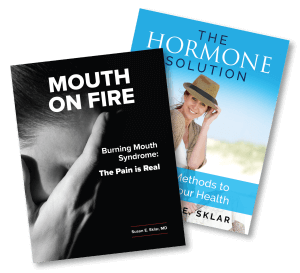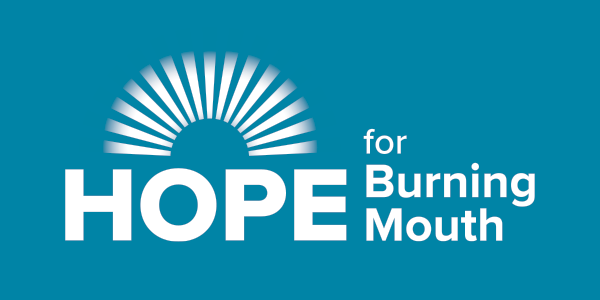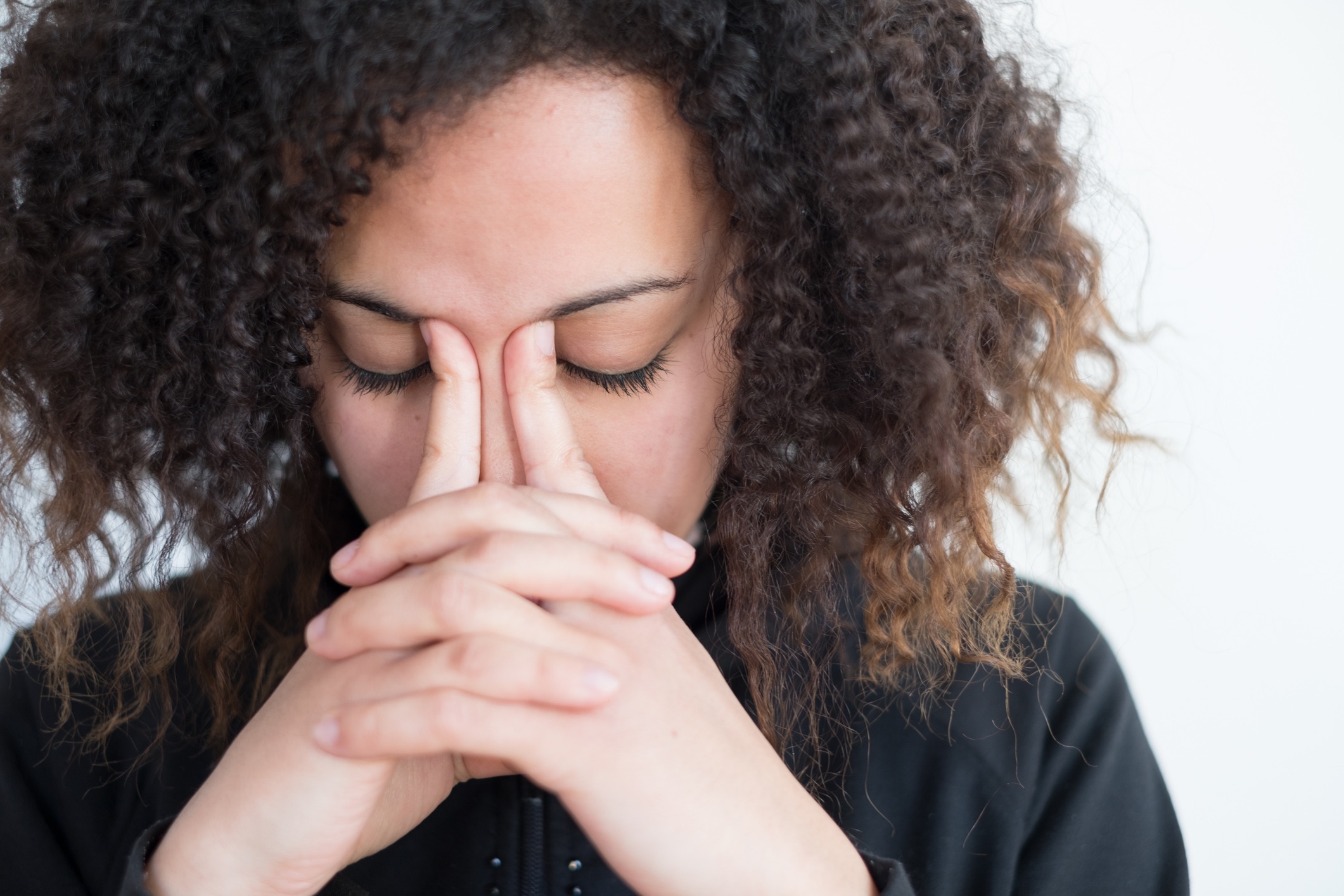Anxiety and Depression: Hormones May Be Your Answer
Are you plagued with anxiety and depression? Hormones could be your answer.
It may be that hormone changes put you on a roller coaster made up of anxiety and depression.
Do you feel as though you constantly struggle to deal with your moods?
You’re not alone!
Anxiety, depression, and hormones
Take a look at Lucy. She’s had depression most of her life. There have always been good days and bad days, but recently, Lucy found an unexpected link: her menstrual cycle. Her moods, it turned out, were much lower during certain parts of her cycle, and much higher during others.
With hormone treatment, however, Lucy found that she could have more good days than bad days. Even better, those treatments banished some of her depressive symptoms once and for all.
Hormonal imbalances often cause or contribute to women’s anxiety and depression systems. Across the United States, as many as 18% of the adult population suffers from an anxiety-related disorder.[1] Another 7% deals with a major depressive disorder on a regular basis.
That number goes up significantly for women, who are more than twice as likely to face mood disorders. It’s not just a US problem, either. Around the world, women have a higher likelihood than men of suffering from anxiety or depression.[2] That’s a huge difference! The difference suggests that sex hormones may have a huge impact on anxiety and depression.
Are you still on the fence about whether hormones could be to blame for your anxiety or depression?
Are you reluctant to assign the blame to “hormones?”
Consider this: studies show that women have more problems with a variety of issues during times when hormones swing more widely. These include:
- Puberty
- Menopause
- Perimenstrual periods
- Postpartum periods
During these stages of life, women are more likely to suffer from mood disorders, anxiety, and depression.[3]
What is depression?
Depression, as a condition, goes far beyond mere sadness. Sadness is influenced by what happens around you. Given enough time or a change in circumstances, sadness usually goes away.
Depression, on the other hand, lingers. It often has little bearing on what’s happening to or around you.[4] While it looks like a sad or anxious “mood,” people who suffer from depression may deal with:
- Feeling helpless or hopeless
- Guilt
- Pessimism
- Feelings of worthlessness
People with depression can show it in many different ways. In some people, it shows through flashes of irritability. Others have decreased energy or struggle to find motivation for the activities they used to enjoy. Many victims of depression have active thoughts about suicide or even attempt it.
Depression may show itself in physical ways, too. Patients with depression may have inexplicable aches and pains, headaches, or digestive problems. Medical examinations may fail to find a source for those problems.
If you know someone with depression, they may seem to draw away from you. When you meet with them in person, they may seem “out of it” or unfocused.
Sound all too familiar? As a woman, you’re 1.5-3 times more likely to develop depression at some point in your life than a man.[5] There is good news! If you are dealing with these symptoms, you don’t have to face them alone.
A look at mood changes and your monthly cycle
Hormonal disruption? It’s par for the course for many women. Your hormone levels change many times over the course of a month. PMS isn’t a myth! It’s also much more than bloating and irritability.[6] Too often, however, women ignore symptoms of PMS. They may even ignore much more serious concerns.
As you get closer to your period, you may notice a wide range of mood changes and shifts. For some women, it gets worse than PMS. Symptoms of premenstrual dysphoric disorder, or PMDD, may include:
- Anxiety
- Depressed mood
- Rapid mood swings
- Irritability
- Decreased interest in your usual activities
- Trouble concentrating
- Overeating or dealing with food cravings
- Feeling overwhelmed
- Lack of energy
- Sleeping too much or too little
- Physical symptoms like breast tenderness or headaches
PMDD requires the presence of at least 5 out of these 11 possible symptoms.[7] When it’s PMDD, they only hit right before your period arrives. PMDD must also interfere with your daily life.
You really are noticing more symptoms
For some women, PMS hits like a truck. It doesn’t just bring on new symptoms. It may also make the problems you’re already dealing with considerably worse.
Take Abby, for example. Abby struggles with anxiety every day. She’s constantly double-checking to make sure she’s taken care of everything. The idea of anything falling through the cracks terrifies her. She often snaps at her loved ones without meaning to.
When PMS arrives, it often makes Abby feel even worse. Sometimes, it’s hard for her to even leave the house! Abby doesn’t suffer from PMDD. It’s just that PMS makes her anxiety much worse. It is clear she needs treatment for anxiety and depression. That treatment is hormone balancing.
Anxiety isn’t the only thing that can get worse during PMS. You may also notice an increase in:
- Depression
- Anxiety
- Bulimia
- Substance abuse
- Mania
- Psychosis
- Migraine headaches
- Allergies
- Asthma
- Seizures
- Herpes
One study followed 32 women who appeared to meet the criteria for PMDD based on their symptoms. After daily charting, it became clear that 59% of these women also met the criteria for a current depressive or anxiety disorder. These women, rather than suffering from PMDD, had symptoms of depression or anxiety that got worse with PMS.[7]
When anxiety gets out of control, hormones could take the blame
Like depression, anxiety may get worse as your hormones shift.[11] Stress hormones often trigger an increase in anxiety. Estrogen levels can also create changes in anxiety based on your monthly cycle.
Do you spend the first two weeks of your cycle with more energy? Do you feel happier? Better prepared to take on the world? Increased estrogen production could improve your mood by a lot.
Unfortunately, after ovulation, your progesterone levels rise. This hormone stimulates the amygdala: the part of the brain responsible for your fight or flight reflex. Your stress levels—and your anxiety levels—may then go up.
Baby blues and more
Jennifer was overjoyed when her son was born. Within a few days, however, she was less excited. She felt down and depressed. Her energy levels decreased—and not just from lack of sleep.
The baby blues had arrived.
While other moms she knew kicked the baby blues pretty quickly, Jennifer’s symptoms lingered for weeks. At her six-week appointment, she was diagnosed with postpartum depression.
The “baby blues,” or symptoms of postpartum depression, are more common than most people realize. After the baby is born, the mother has a lot less progesterone and estrogen in her system than she did during her pregnancy.
There’s been a lot of research done on the hormonal changes that happen after birth and how likely they are to contribute to postpartum depression. In general, researchers agree that women are more likely to face symptoms of depression because of these hormonal changes.[8]
In Sweden, a study found that as many as 18% of women had postpartum depression symptoms in the first six months after delivery.[8] Worldwide, postpartum depression rates hover between 4.4% and 9%. If you suffered from depression before or during your pregnancy, you may be at higher risk for depression after delivery.
How perimenopause can change your mood
Rachel knows she’s getting close to perimenopause. She was expecting the hot flashes and mood swings. What she wasn’t expecting was that constant “down” feeling. She’s lost interest in a lot of the things she used to enjoy. If she’s being honest, she’s having a hard time getting excited about much of anything. She used to have big plans for what she was going to do when the kids were older. Now, she’s feeling like there’s something wrong with her. The trouble is, she has no idea what’s going on.
Rachel isn’t alone. Many women experience changed emotions and mood swings during perimenopause. Depression risk also increases during this time. Women who had depression at other points in their lives may be at higher risk for depression during perimenopause. Was your depression related to hormones? It may make your risk even higher.
Menopause and depression: the untold symptoms
Rachel was prepared for menopause to bring changes to her sex drive and energy levels. She didn’t expect increased anxiety. She’s started to struggle to get out of the house. Normal social activities leave her feeling flustered and upset. She worries more than she ever did before. She can’t find an outside reason for those changes.
Her hormones are to blame for anxiety and depression.
Menopause brings with it plenty of changes. Many of those changes can also increase the risk of depression. Unfortunately, depression during menopause often goes undetected.[9] Postmenopausal women—those who are more than a year from their last period—have higher rates of depression than women who haven’t yet gone through menopause.[10] In fact, you are more susceptible to depression after menopause than at any other time of your life.
A closer look: how hormones impact your mood
Hormones are powerful little chemicals. They’re designed to keep your body working normally. They control many of the functions of your organs and tissues.
Hormones are controlled by specific glands: adrenal glands, pituitary glands, thyroid glands, and the ovaries and testes. These glands release hormones into the body as needed.
When your hormones swing out of whack, your moods can swing along with them. Imbalanced hormones can leave you feeling tired, irritable, or just out of sorts. You already know about the impact estrogen and progesterone can have. Other hormones that impact your mood include:
- Cortisol
- Testosterone
- Thyroid hormone
- Estrogen
- Progesterone
Hormones work together with brain chemicals called neurotransmitters. Levels of dopamine, serotonin, testosterone, and GABA all matter. Let them sink too low, and you can notice your mood slipping along with them. You may feel depressed and anxious or struggle with focus and concentration. Your libido may drop. Fatigue and panic attacks may increase. When you hit that point, you need to find a potential cause for those problems.
Adrenal hormones
You’ve probably heard a lot about cortisol: the stress hormone. High cortisol levels may leave you feeling more stressed and anxious. They can also make it much harder for you to lose weight. Cortisol may specifically make you hold on to belly fat. If you’ve been stressed, your cortisol levels may already be sneaking up. Adrenal fatigue may also leave you dealing with tiredness and depression.[13]
Hypo- or hyperthyroid issues
Your thyroid is a powerhouse of hormone production. Produce too few of those hormones (also known as hypothyroidism), and your risk of depression shoots up. Have too many thyroid hormones? You may deal with more anxiety. Untreated thyroid issues can also cause exhaustion and problems losing weight.[14]
Estrogen
High levels of estrogen influence the chemicals that help boost your mood. You’ll feel happier and more energetic as a result. Decreased estrogen levels, on the other hand, can cause problems. You may struggle with panic attacks or increased depression.
Many women who deal with depression, anxiety, or mood swings may end up taking medication those symptoms. They may not ever find the imbalance that could be to blame. Have you seen these symptoms? It could be low estrogen.
- Foggy mind
- Hot flashes
- Depression
- Memory lapses
- Headaches
- Vaginal dryness
- Irregular periods
- Bone loss
- Sleep problems
It’s not just low estrogen that can cause problems. High estrogen can cause:
- Heavy bleeding
- Tender breasts
- Increased PMS
- Cysts in your breasts
- Ovarian cysts
- Weight gain in the belly
- Anxiety
- Irritability
- Water retention
Progesterone
You may know about progesterone as a hormone that helps when you’re pregnant. It affects many other areas of your body, too. It works as a counter to estrogen. When levels are in balance, that’s a good thing! People whose hormones are out of balance face many problems. Sleep can become a challenge. Anxiety often increases. Migraines happen often. That lack of balance can also cause worse mood swings.
Progesterone can also:
- Calm the brain
- Lower anxiety
- Maintain uterine lining
- Prevent excess tissue buildup in the uterus
- Encourage weight loss
- Balance blood sugar
- Help move extra water out of the body
- Stimulate bone growth
- Reduce depression/anxiety symptoms
- Encourage healthy sleep
- Decrease migraines related to your cycle
- Restore cell oxygen levels
- Improve sex drive
Testosterone
When you think of testosterone, you probably think of men. It’s not just important to men, however! In men, it regulates sex drive, bone mass, fat distribution, muscle mass, and strength. Women also need testosterone.[15] If it drops too low, they may deal with:
- Decreased sex drive
- Depression
- Fatigue
- Trouble concentrating
- Poor memory
- Decreased muscle and strength
- Loss of body hair
- Decreased bone mass
- Increased belly fat
- Mood swings
- Anxiety
- Sleep problems
DHEA
DHEA has, in some cases, been used to treat depression. It also helps decrease cortisol in the body. If you’re dealing with high stress levels along with depression, DHEA can have a powerful impact.[16] DHEA is naturally produced in the adrenal glands, sex glands, and brain.
Blood levels of DHEA naturally peak around 25. As women age, levels of DHEA may drop naturally. Called the “mother of all hormones,” DHEA can help with the conversion progesterone, estrogen, and testosterone.
People with chronic diseases, including cancer, AIDS, and heart disease, are more likely to have low DHEA levels. When DHEA levels are high, the adrenal glands can convert them to other useful hormones. Those then improve energy levels.
DHEA:
- Increases energy
- Improves mental and emotional health
- Helps decrease insulin resistance
- Helps boost the immune system
- Enhances the ability to lose fat and gain muscle
Hormones to the rescue
At some point, most women will experience some hormonal discomfort. It might hit during pregnancy or after giving birth. Women might struggle due to peri- or post-menopause shifts. Studies have shown that it is possible to recover from these symptoms! By restoring stable, optimal levels of estrogen, many women will experience relief.[17]
Multiple hormones can contribute to mood problems. If you’re struggling with depression or anxiety, all too often, hormones are to blame. By staying on top of those changes in your life, you can save yourself a lot of suffering.
Early evaluation and treatment can help prevent a lot of mood changes caused by hormones at any stage of a woman’s life. This includes:
- Period-related shifts
- Pregnancy
- Menopause
See an expert in hormone restoration to rebalance your hormones and improve your mood. Be sure to ask for bio-identical hormones! That means the hormones are chemically and molecularly identical to the ones already in your body. These are the safest, most effective hormones. Using bio-identical hormones can help reduce anxiety and relieve depression while eliminating the risks of other hormone use.
Conclusion
At Sklar Center for Restorative Medicine, we replace and restore the missing or out of balance hormones. Patients feel great and have significant improvement of their mood symptoms when they are on a balanced regimen of hormones. Have questions? Need a personal evaluation? Give us a call today at 562-596-5196 to request a consultation.
References
- Ronald C. Kessler, PhD, Wai Tat Chiu, AM, Olga Demler, MA, MS, and Ellen E. Walters, M.S.
Prevalence, Severity, and Comorbidity of Twelve-month DSM-IV Disorders in the National Comorbidity Survey Replication (NCS-R)
Arch Gen Psychiatry. 2005 Jun; 62(6): 617–627.
LINK: Prevalence, Severity, and Comorbidity of Twelve-month DSM-IV Disorders in the National Comorbidity Survey Replication (NCS-R) - Soraya Seedat, PhD, Kate Margaret Scott, PhD, Matthias C. Angermeyer, PhD, Patricia Berglund, MBA, Evelyn J. Bromet, Ph.D., Traolach S. Brugha, MD (NUI), FRCPsych, Koen Demyttenaere, MD, PhD, Giovanni de Girolamo, MD, Josep Maria Haro, MD, MPH, PhD, Robert Jin, MA, Elie G. Karam, MD, Viviane Kovess-Masfety, MD, PhD, Daphna Levinson, PhD, Maria Elena Medina Mora, PhD, Yutaka Ono, MD, PhD, Johan Ormel, PhD, Beth-Ellen Pennell, MA, Jose Posada-Villa, MD, Nancy A. Sampson, BA, David Williams, PhD, MPH, and Ronald C. Kessler, PhD
Cross-national associations between gender and mental disorders in the WHO World Mental Health Surveys
Arch Gen Psychiatry 2009 Jul; 66(7): 785–795.
LINK: Cross-national associations between gender and mental disorders in the WHO World Mental Health Surveys - Douma, S. L. MSc; Husband, C. MD, FRCP; O’Donnell, M. E. RN; Barwin, B. N. MD, FRCOG, FACOG, FSCOG; Woodend, A. K. MSc, PhD, R
Estrogen-related Mood Disorders: Reproductive Life Cycle Factors
Advances in Nursing Science October-December 2005 – Volume 28 – Issue 4 – p 364-375
LINK: Estrogen-related Mood Disorders: Reproductive Life Cycle Factors - National Institutes of Health
Depression in Women: 5 Things You Should Know
National Institutes of Health No. 20-MH-4779 Revised 2020
LINK: Depression in Women: 5 Things You Should Know - Ronald C.Kessler
Epidemiology of women and depression
Journal of Affective Disorders Volume 74, Issue 1, March 2003, Pages 5-13
LINK: Epidemiology of women and depression - Susan E. Sklar, M.D.
The (Natural) Secrets to Relieving PMS Symptoms
Sklar Center for Restorative Medicine
LINK: The (Natural) Secrets to Relieving PMS Symptoms - Teri B. Pearlstein, MD
Hormones and depression: What are the facts about premenstrual syndrome, menopause, and hormone replacement therapy?
AJOG. VOLUME 173, ISSUE 2, P646-653, AUGUST 01, 1995
LINK: Hormones and depression: What are the facts about premenstrual syndrome, menopause, and hormone replacement therapy? - Claudio N. Soares, MD, PhD; Brook Zitek, DO
Reproductive hormone sensitivity and risk for depression across the female life cycle: A continuum of vulnerability?
J Psychiatry Neurosci Date 2008;33(4):331-43.
LINK: Reproductive hormone sensitivity and risk for depression across the female life cycle: A continuum of vulnerability? - News Release 22 January 2020
Depression Common During Perimenopause but not Regularly Assessed by Providers
North American Menopause Society
LINK: Depression Around Menopause Often Goes Undetected - Morning Edition
As Menopause Nears, Be Aware It Can Trigger Depression And Anxiety, Too
Morning Edition January 16, 2020
LINK: As Menopause Nears, Be Aware It Can Trigger Depression And Anxiety, Too - Jamie Wiebe
What Is The Relationship Between Hormones and Anxiety?
Talkspace Aug 09, 2019
LINK: What Is The Relationship Between Hormones and Anxiety? - Susan E. Sklar, M.D.
Feeling Tired All the Time? Adrenal Fatigue: Symptoms and Treatment
Sklar Center for Restorative Medicine
LINK: Feeling Tired All the Time? Adrenal Fatigue: Symptoms and Treatment - Susan E. Sklar, M.D.
Stress and Weight Gain: Fat is Not Your Fault
Sklar Center for Restorative Medicine
LINK: Stress and Weight Gain: Fat is Not Your Fault - Susan E. Sklar, M.D.
Untreated Thyroid Disease: Do You Feel Cold, Fat, and Tired?
Sklar Center for Restorative Medicine
LINK: Untreated Thyroid Disease: Do You Feel Cold, Fat, and Tired? - Teri B. Pearlstein, MD
Hormones and depression: What are the facts about premenstrual syndrome, menopause, and hormone replacement therapy?
American Journal of Obstetrics Gynecology VOLUME 173, ISSUE 2, P646-653, AUGUST 01, 1995
LINK: Hormones and depression: What are the facts about premenstrual syndrome, menopause, and hormone replacement therapy? - Young AH
Cortisol in mood disorders.
Stress2004 Dec;7(4):205-8.
LINK: Cortisol in mood disorders. - Douma SL, Husband C, O’Donnell ME, Barwin BN, Woodend AK.
Estrogen-related mood disorders: reproductive life cycle factors.
ANS Adv Nurs Sci. 2005 Oct-Dec;28(4):364-75.
LINK: Estrogen-related mood disorders: reproductive life cycle factors.
Download Your Free eBook




